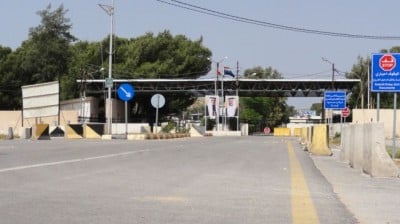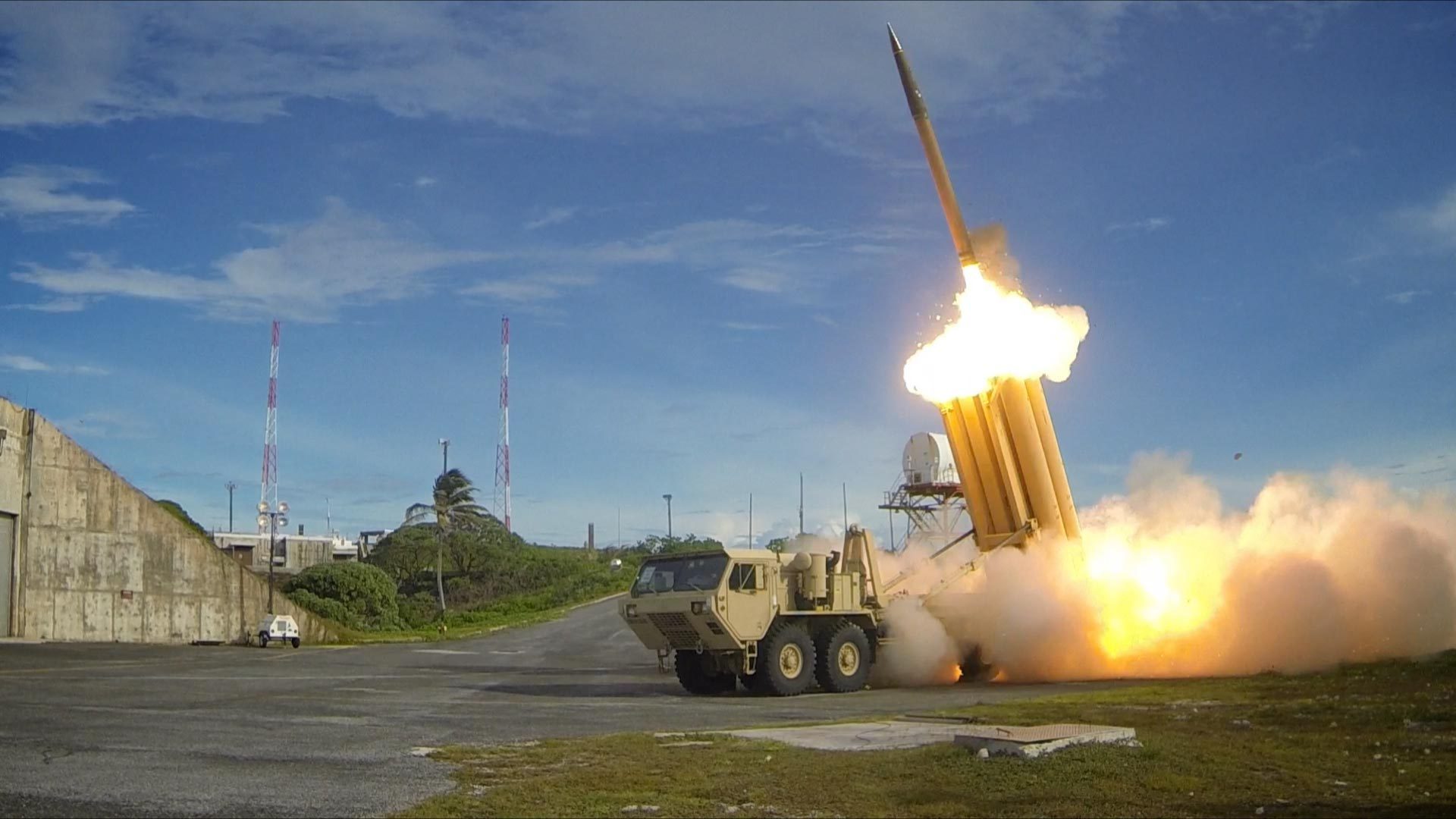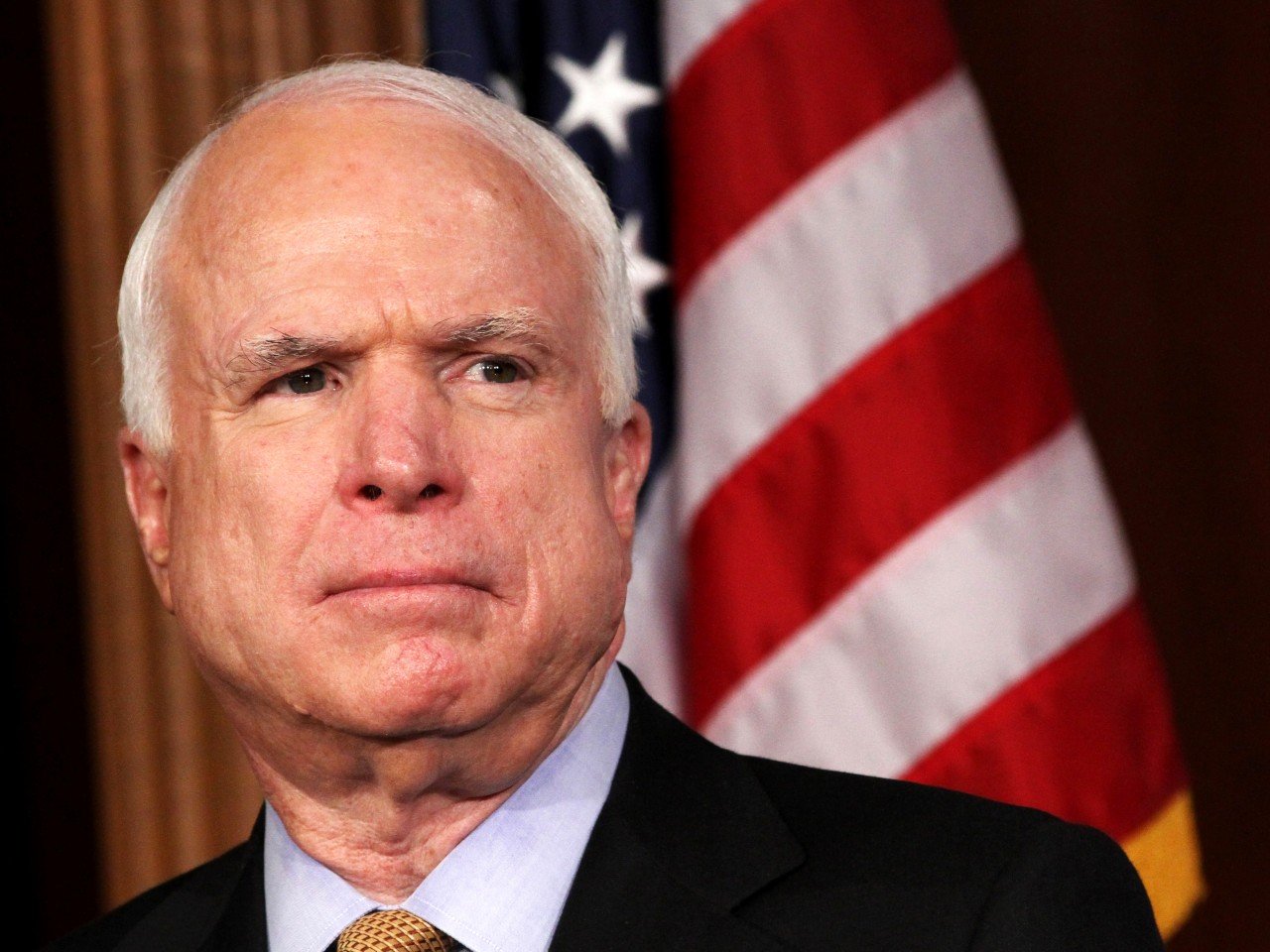Is North Korea a Diversion for a US-Jordan Invasion of Syria?

“Syrian President Bashar Al-Assad said that his country has information that Jordan is planning to send its troops into southern Syria in cooperation with the United States….’Jordan is not an independent country. Whatever the United States wants, it will happen,’ said Assad.” — Middle East Monitor
“In the event of a de-facto partition of Syria, the US and its allies will get a strategically important region. It is through Deir Ezzor that the proposed gas pipeline from Qatar is supposed to run….The Deir Ezzor province is also home to Syria’s largest oil deposit, the Al-Omar. …the city and the province are of particular value since the deposits there contain the highly valuable light sweet crude usable in the production of gasoline and diesel fuel.” — South Front, “The Stronghold of Deir Ezzor; What You Need to Know”
The United States is not going to launch a preemptive attack on North Korea. The risks far outweigh the rewards and, besides, the US has no intention of getting bogged down in a conflict that doesn’t advance its geopolitical objectives. The saber-rattling is just an attempt to divert attention from the Syria-Jordan border where the US and Jordan are massing troops and equipment for an invasion of Syria. That’s what’s really going on. The Korean fiasco is a smokescreen.
True, the Trump administration is milking the situation for all its worth, but that doesn’t mean that they want a war with the North. That’s not it at all. Washington wants to deploy its controversial THAAD anti-missile system to South Korea, but it needs a pretext to do so. Hence, the ominous threat of an “unstable, nuclear-armed North Korea”, that’s all the justification Washington needed to get its new weapons system deployed. Mission Accomplished.
But the Terminal High Altitude Area Defense system (THAAD) isn’t aimed at North Korea, it’s aimed at China, and China knows it which is why it has protested its deployment repeatedly. The US wants to surround China and Russia with military bases and missile systems that are integrated into its broader nuclear weapons system. These lethal systems are a crucial part of Washington’s plan to pivot to Asia and rule the world into the next century. Here’s the rundown from Tass:
“Anti-missile elements that are being deployed around the world are part of a very dangerous global project aimed at securing US’ overall overwhelming superiority to the prejudice of security interests of other states….The US missile defense architecture is tilting the strategic balance of forces in the area of offensive weapons and creates more and more serious risks of global instability.” (“US anti-missile systems in Eastern Europe violate INF Treaty”)
And here’s how Russian President Vladimir Putin summed it up:
“The US is developing an anti-missile defense system which”….when it is operational… “there will be a moment in time when our entire nuclear capability will be neutralized, which means that the entire global balance of power will be overturned.. This means one of the powers will have absolute security and be able to do whatever it likes in regional conflicts. We’re talking about unrivaled power in global conflicts. ..This system forces us to create weapons that can nullify the system asymmetrically.” (Tass)
Is missile defense something the American people should want?
Heck no. Just think of the number of people that Uncle Sam has slaughtered in the last 16 years. Now try to imagine if all the constraints on Washington’s rampaging were removed allowing the US to conduct its bloody war on the world with complete impunity?
No one in their right mind would ever give the Washington crazies that kind of power. It’s a prescription for global annihilation. Besides, absolute security for one country means no security for everyone else.
But deploying the THAAD anti-missile system is just one part of Washington’s North Korea swindle. The fear-mongering is also being used to grease the wheels of the Military Industrial Complex (MIC). Here’s the scoop from The Hill:
Sen. John McCain
“Sen. John McCain’s (R-Ariz.) push for a $7.5 billion fund to bulk up the U.S. military’s capabilities in the Asia-Pacific is gaining momentum as tensions with North Korea mount. The commander of U.S. forces in the region threw his support behind the idea this week, “This kind of money can help us bring together our allies and partners,” said Patrick Cronin, senior director of the Asia-Pacific Security Program at the Center for a New American Security. …The … proposal has gained more visibility amid the intensifying concerns over North Korea and its nuclear program.” (“McCain plan gains momentum amid North Korea threats”, The Hill)
So the MIC lackeys in Congress had already been pushing this latest boondoggle, but they needed a trumped up crisis in North Korea to put them over the finish line. Typically, the process is called “creative advertising”, which means scaring the shit out of the public so you can rip them off. Here’s more from the same article:
“I’d like to thank Chairman McCain and this committee for proposing and supporting the Asia-Pacific Stability Initiative,” Adm. Harry Harris, commander of U.S. Pacific Command, said at Thursday’s hearing. “This effort will reassure our regional partners and send a strong signal to potential adversaries of our persistent commitment to the region.”
The weapons manufacturers love sugar-daddy McCain who’s always on-hand with gobs of moolah.
Here’s more:
“We can thank North Korea for one thing in this,” said Harry Kazianis, director of defense studies at the Center for the National Interest”. “They’re amplifying the imbalance in the Asia-Pacific.” (The Hill)
Good idea, let’s thank North Korea for this latest windfall for the weapons makers. Why not? Let’s send Kim a nice big valentine from the American taxpayer with John McCain’s name writ large at the bottom.
In any event, Washington’s policy towards North Korea hasn’t changed. All the chest thumping and fireworks are just part of a circus sideshow designed to justify additional defense splurging and missile deployment. At the same time, the media is trying to divert attention from critical developments in the Middle East, particularly the Syria-Jordan border where Washington has rallied its proxy-fighters into a makeshift army that will (likely) invade southern Syria, charge northward to Deir Ezzor, establish a no-fly zone over the occupied territory, and partition the area east of the Euphrates preventing loyalist forces from reestablishing Syria’s sovereign borders. That appears to be the basic game-plan. Check this out from the Middle East Monitor:
“The Syrian regime of President Bashar Al-Assad said that his country has information that Jordan is planning to send its troops into southern Syria in cooperation with the United States…
“We have this information, not only from mass media, but from different sources”…
Speaking to The Washington Post, King Abdullah of Jordan reiterated that a planned joint operation could take place against terrorists. “It is a challenge, but we are ready to face it in cooperation with the US and Britain.” (“Assad accuses Jordan of planning Syria invasion”, Middle East Monitor)
The pretext for the invasion will be to fight ISIS, but the real goal is to seize the eastern part of the country consistent with a plan that was concocted by the Brookings Institute two years ago. After 6 years of covert support for CIA-backed militants on the ground, the Trump administration appears to be leaning towards a more traditional military approach. Here’s more from the LA Times:
“Reports have also emerged of Jordanian and U.S. troops on the section of the Jordanian border opposite southwest Syria, a possible prelude to a campaign in which rebels, supported by Jordanian and coalition forces on the ground, would overrun Islamic State’s pocket in the Yarmouk basin, near southwestern Syria’s borders with Israel and Jordan.” (“How long can Jordan keep walking the Middle East tightrope?”, LA Times)
Naturally, Moscow is concerned about the developments on the Jordanian border. Last week, Russian Foreign Minister Sergei Lavrov issued a statement saying,
“We will pay special attention to the issues most important for us which concern the situation on the Jordan-Syria border.”
Also worrisome, is the fact that US Defense Secretary James “Mad Dog” Mattis has been traveling across the Middle East rallying Washington’s allies in Saudi Arabia, Egypt and Israel. Mattis sees the fighting in Syria as a proxy-war between the US and Iran for influence in the region. This same erroneous view is shared by all of the main powerbrokers in the Trump administration.
“Everywhere there’s trouble in the region, you find Iran,” Mr. Mattis said on a stop in Riyadh, adding that nations in the region are working to “checkmate Iran and the amount of disruption, the amount of instability they cause.”
These latest developments take place just days before the resumption of negotiations in Astana, Kazakhstan (May 3 and 4). Russia, Turkey, Iran and a number of the leaders from the rebel groups will gather to see if they can agree on the terms of a ceasefire and an eventual settlement to the 6 year-long war. The Trump administration’s cruise missile attack on a Syrian airbase in early April has boosted the morale of many of the jihadists militias and is keeping them away from the bargaining table. In other words, Trump’s unexpected escalation has sabotaged Putin’s efforts to resolve the crisis and end the hostilities. The last thing Washington wants in Syria is peace.
A number of reports have confirmed that Trump has handed control of his foreign policy to his Generals, Mattis and McMaster. And while Mattis has shown little interest in getting more deeply involved in the Syrian conflict, McMaster sees Russia as a “hostile revisionist power” that “intimidates our allies, develops nuclear weapons, and uses proxies under the cover of modernized conventional militaries.”
McMaster is a hard-boiled militarist with a driving animus towards Russia. In a speech he delivered at The Center for Strategic and International Studies, McMaster offered this remedy for so called ‘Russian aggression’. He said:
“what is required to deter a strong nation that is waging limited war for limited objectives… is forward deterrence, …(is) convincing your enemy that (he) is unable to accomplish his objectives at a reasonable cost.”
McMaster can be expected to use his “forward deterrence” theory in Syria by trying to lure Putin into a confrontation with US forces east of the Euphrates. But there’s no reason to think that Putin will fall into the trap, in fact, it seems highly unlikely given the potential for a catastrophic face-off between the two nuclear-armed superpowers. Instead, Putin will probably take the high-road, present his case to the UN Security Council, and denounce the US intervention as another example of Washington’s destabilizing and expansionistic foreign policy.
Putin’s worst mistake would be to base his strategy entirely on the situation on the battlefield. He doesn’t need to liberate every inch of Syrian soil to win the war. Let the US and its proxies seize the territory, establish their military bases and no-fly zones, throw up a DMZ along the Euphrates, and wade deeper into the Syrian morass. Putin has other fish to fry. He needs to focus on winning hearts and minds, strengthening alliances and building a broader coalition. He needs to look like the only adult in the room, the rational leader whose sole ambition is to end the dispute and restore security. He needs to establish a contrast between his behavior and that of his recklessly-violent and mentally-unstable rival, Washington, whose flagrant disregard for international law and civilian lives has plunged the Middle East and Central Asia into chaos and carnage.
If Putin’s ultimate goal is to rebuild the system of global security based on the bedrock principles of national sovereignty and greater representation for all the countries in the world, he must lead by example. Restraint and maturity in Syria will move him closer to that goal.
Mike Whitney lives in Washington state. He is a contributor to Hopeless: Barack Obama and the Politics of Illusion (AK Press). Hopeless is also available in a Kindle edition. He can be reached at [email protected].





